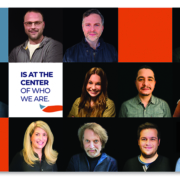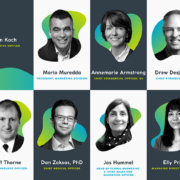Digital twins in pharma – are the lifesciences and pharma industries ready?
Digital twins in pharma – are the lifesciences and pharma industries ready?
By Abid Rahman, EVERSANA
In the dynamic realm where technology meets humanity, we are seeing a new frontier called digital twins. These AI-driven entities, also known as digital humans or synthetic clones, are reshaping the future of education, research, and training across nearly every sector, including the pharmaceutical and life sciences industries.
A December 2023 article in Forbes magazine delved into this technology in healthcare, highlighting its potential. Digital twins enable brands to craft narratives and interact with patients, healthcare providers and others.
Understanding digital twins
At its core, a digital twin is a virtual, digital copy of something tangible. It could represent a physical product, a manufacturing process, a supply chain or even an entire city. What sets digital twins apart is their connection to the real world. They continuously gather real-time data from their physical counterparts, enabling simulations, predictive modeling, and scenario analysis.
The concept of digital twins dates back to NASA’s pioneering work in the 1960s. NASA created digital replicas of spacecraft to simulate missions and train astronauts. These early digital twins played a crucial role in the Apollo 13 mission, saving lives by providing critical insights.
Today, there are a lot of applications in the pharmaceutical and life sciences industries. Here are just a few:
Drug discovery and development
- Digital twins can accelerate drug discovery by simulating molecular interactions, predicting drug efficacy, and optimizing lead compounds.
- Researchers can create virtual models of biological systems, allowing for rapid testing of hypotheses and reducing the need for costly experiments.
Manufacturing optimization
- Pharmaceutical manufacturing processes are complex and sensitive. Digital twins enable real-time monitoring, process optimization, and predictive maintenance.
- By simulating production lines, companies can identify bottlenecks, improve efficiency, and ensure product quality.
Clinical trials
- Digital twins can simulate patient responses to treatments, helping design more efficient clinical trials.
- Personalized medicine trials can benefit from patient-specific digital twins, tailoring treatments based on individual characteristics.
Precision medicine
- Developing personalized therapies requires understanding patient variability. Digital twins allow for patient-specific modeling, predicting treatment outcomes.
- By integrating genetic, clinical, and lifestyle data, pharma companies can create holistic digital health profiles.
Patient education and training
- Digital twins also have the potential to change how drug education and even patient engagement occur. What once required a video shoot with clinicians can now be done faster and more cost-effectively through digital characters.
- Personas can be created to meet demographic and regional needs, and approved scripts can then be fed into a machine learning platform to mimic the speech patterns of humans.
- Within days, not months, ready-to-share content could be available to educate patients or communities on a new therapy.
Partnering for success
As AI continues to evolve, digital twins have emerged as a beacon of innovation in life sciences education. However, it’s crucial not to rush into this domain without the right expertise and support. For leaders in the industry, that means collaborating with experienced partners who possess a deep understanding of the rapid advancements in technology to navigate this transformative journey effectively.
Manufacturers should embrace digital twins as a catalyst for change and progress. By harnessing their transformative power, the industry can revolutionize education, empower, healthcare professionals and, ultimately, improve patient outcomes.
 |
Abid Rahman is SVP of innovation at EVERSANA and brings more than two decades of experience in technology, including 19 years in the pharmaceutical industry. Specializing in leveraging AI, Abid focuses on developing cutting-edge solutions to address complex challenges in healthcare. You can reach him at [email protected]. |











